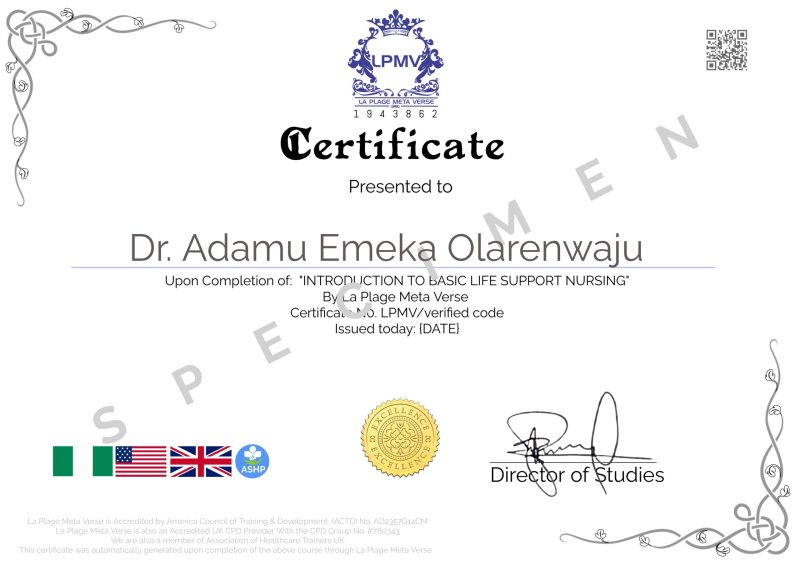course overview
International volunteering offers a unique opportunity for individuals to engage in meaningful service while experiencing different cultures and communities around the world. This course provides an in-depth exploration of international volunteering, covering various aspects such as its significance, types of programs, preparation, challenges, and impact assessment. Through theoretical discussions, case studies, and practical exercises, participants will gain insights into the complexities and dynamics of international volunteering, equipping them with the knowledge and skills necessary to engage effectively in global service initiatives.
What you will Learn
- Concept and significance of international volunteering
- Types of international volunteering programs (e.g., volunteer tourism, skills-based volunteering)
- Ethical considerations and best practices in international volunteering
- Preparation for international volunteering (research, pre-departure training, health considerations)
- Challenges and risk management in international volunteering (e.g., cultural shock, health and security risks)
- Impact assessment of international volunteering on volunteers and host communities
- Developing cross-cultural competence and effective communication skills
- Understanding power dynamics, privilege, and cultural sensitivity
- Long-term sustainability and community engagement in international volunteering efforts
who to learn
- Pioneers and Founders: Individuals who established early international volunteering organizations or initiatives, such as Albert Schweitzer, who founded the Lambarene Hospital in Gabon, or Dorothy Day, co-founder of the Catholic Worker Movement.
- Contemporary Leaders: Current leaders in the field who have significantly contributed to shaping international volunteering practices and policies, such as Wendy Kopp, founder of Teach For America and Teach For All, or Jacqueline Novogratz, founder, and CEO of Acumen, a non-profit global venture fund.
- Academics and Researchers: Scholars who have conducted research and published works on international volunteering, including Robert D. Putnam, author of “Bowling Alone” and studies on social capital, or Dr. Angela M. Eikenberry, who explores the relationship between nonprofit organizations and globalization.
- Activists and Advocates: Individuals who advocate for ethical and sustainable international volunteering practices, such as Daniela Papi-Thornton, founder of Learning Service, an organization promoting responsible volunteering, or J.R. Kerr, founder of Ethical Volunteering Group, which campaigns for ethical volunteering standards.
- Community Leaders: Leaders within host communities who collaborate with international volunteers and organizations, providing valuable insights and perspectives on the impact of volunteering, such as local NGO directors, community organizers, or grassroots activists.
- Volunteers with Diverse Experiences: Individuals who have volunteered internationally and documented their experiences through blogs, vlogs, or memoirs, offering personal insights into the realities, challenges, and rewards of international volunteering.
- Ethical Experts and Advisors: Professionals specializing in ethical considerations in volunteering, such as Dr. Lisa Eckenwiler, a bioethicist focusing on global health ethics, or Dr. Arnaud Kurze, who examines the ethics of humanitarian interventions and volunteering.
Career Opportunities
- International Development Worker: Work for NGOs, international organizations, or government agencies to implement development projects in various sectors such as education, healthcare, agriculture, or infrastructure in developing countries.
- Humanitarian Aid Worker: Provide emergency relief and assistance to communities affected by natural disasters, conflicts, or other crises, working for humanitarian organizations such as the Red Cross, UNICEF, or Médecins Sans Frontières (Doctors Without Borders).
- Community Organizer: Facilitate community-driven development initiatives by working closely with local communities to identify needs, mobilize resources, and implement sustainable solutions.
- Program Coordinator/Manager: Manage and oversee international volunteering programs, including recruitment, training, logistics, and project implementation, ensuring smooth operations and effective outcomes.
- Cross-Cultural Trainer: Provide training and support to volunteers, expatriates, and organizations to develop cross-cultural competence and understanding, facilitating successful interactions and collaborations across cultural boundaries.
- Social Entrepreneur: Start or work for social enterprises that address social or environmental challenges in international contexts, leveraging innovative business models for sustainable impact.
- International Education Coordinator: Develop and manage international volunteering and service-learning programs for educational institutions, facilitating student engagement in global service initiatives and cross-cultural exchange.
- Policy Analyst/Advocate: Research and analyze policies related to international volunteering, advocate for ethical and sustainable practices, and influence decision-making at local, national, and international levels.
- Grant Writer/Fundraiser: Secure funding and resources for international volunteering projects and organizations by writing grant proposals, organizing fundraising events, and cultivating donor relationships.
- Researcher/Evaluator: Conduct research and evaluation studies to assess the impact of international volunteering programs, contribute to the evidence base for best practices, and inform programmatic improvements and policy decisions.
- Freelance Consultant: Provide consulting services to organizations and individuals on various aspects of international volunteering, including program design, evaluation, risk management, and capacity building.
Prerequisites
This course does not require participants to have a specific entry requirement. Those who are interested can sign up.
Course Duration & Online Support
Duration depends on the learner’s ability to cope with the pace and scope of the course. Self-study allows participants to complete the course at their own pace. Support extensions are also available if students fail to do so within that period.
Assessment
To successfully complete the course, students are required to complete various tests and assessments. You may be required to get a link from our Training Provider. Your test will be reviewed and graded by our system. You may attempt only twice
Get a Completion Certificate.
La Plage Meta Verse is an Internationally Accredited Institution.
REGISTRATION NUMBER: 1943862
ACCREDITATION
LPMV is ISO 9001 Quality Management System Certified Business
LPMV is a member of Association of Healthcare Trainers (AOHT) UK
LPMV is also an Accredited CPD Provider With the CPD Group No. #780343
LPMV is Accredited by America Council of Training & Development (ACTD) No. AD2357G14CM
Upon successful completion of the course, students will be able to gain an international Accredited Certificate. Share your certificate with prospective employers and your professional network on all social media platforms.

